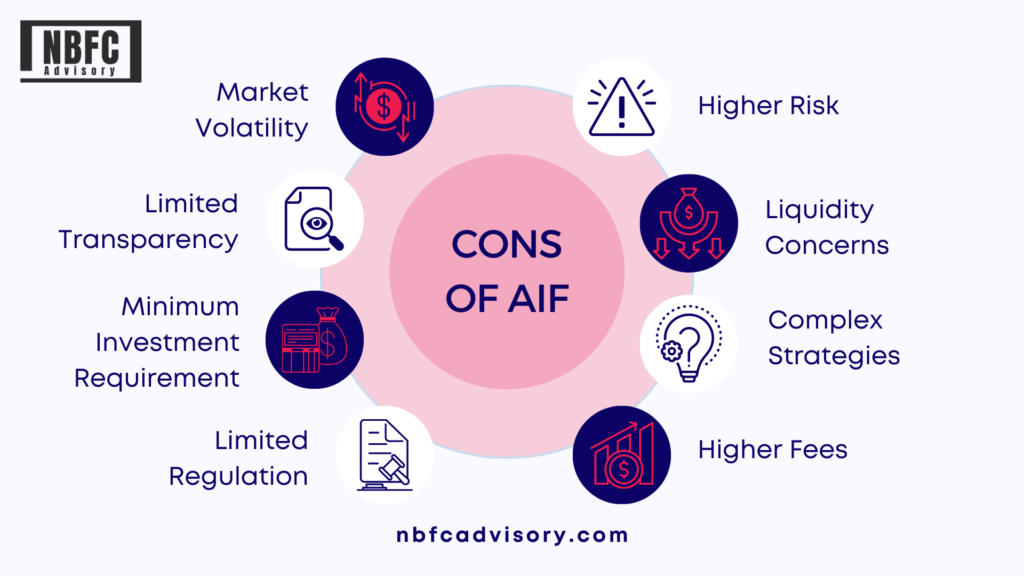Inside This Article
In the intricate tapestry of the investment world, Alternate Investment Funds (AIFs) stand out as a beacon for diversification and growth. These funds, while relatively new, have become a cornerstone for investors seeking non-traditional avenues. This comprehensive guide, curated by FinGuru, aims to shed light on the nuances of AIFs, their regulatory framework, and their significance in today’s financial ecosystem.
Decoding Alternate Investment Funds (AIFs)
AIFs are collective investment vehicles, pooling capital from various Indian and foreign investors. Unlike traditional routes, AIFs venture into alternative assets such as private equity, hedge funds, and real estate. This diversification offers a unique blend of risk and reward, making AIFs a sought-after investment choice.
What triggers into the registration of AIF
The registration of an Alternate Investment Fund (AIF) is triggered by various factors and requirements as laid down by the Securities and Exchange Board of India (SEBI). Here are the primary triggers and prerequisites for the registration of an AIF:
- Nature of the Fund: Any fund established or incorporated in India in the form of a trust, a company, a limited liability partnership (LLP), or a body corporate which intends to pool in capital from investors (Indian or foreign) for investing as per a pre-decided policy falls under the definition of AIF and needs to register.
- Exclusions from Traditional Investment Avenues: If the fund is not categorized as a mutual fund, collective investment scheme (CIS), family trust, ESOP trust, employee welfare trust, holding company, special purpose vehicle, or any such pool of funds which is directly regulated by any other regulator in India, then it would need to register as an AIF.
- Size of the Fund: If the fund has a corpus that is collected from investors, whether Indian, foreign, or both, and is managed by a fund manager or investment advisor, it would need to register as an AIF.
- Intention to Operate in India: Any fund which is not registered under the SEBI (Mutual Funds) Regulations, 1996, SEBI (Collective Investment Schemes) Regulations, 1999, or any other regulations of the Board to regulate fund management activities, but operates as a private pool of capital and wishes to solicit funds from investors, whether Indian or foreign, by way of a placement memorandum or otherwise, needs to register under the AIF regulations.
- Category Classification: Based on the fund’s objectives, strategies, and areas of investment, it would need to classify itself under one of the three categories of AIFs (Category I, II, or III) and register accordingly.
- Seeking Benefits: Funds that aim to avail benefits or concessions provided by the government or any other regulator would need to register as an AIF.
- Compliance and Transparency: To ensure transparency, fair practices, and investor protection, funds that align with the characteristics of AIFs are required to register, ensuring they adhere to the guidelines and regulations set by SEBI.
- Operational Requirements: Before starting its operations, the AIF needs to obtain a certificate of registration from SEBI and ensure that it has the necessary infrastructure, the key personnel, and the operational capability to carry out the operations of the AIF.
In essence, the triggers for AIF registration revolve around the nature, operations, and objectives of the fund, coupled with the need for regulatory compliance and investor protection. If a fund aligns with the characteristics defined for AIFs by SEBI and operates within India, it would need to register as an AIF.
Who should register AIF

The registration of an Alternate Investment Fund (AIF) should be undertaken by the entity or individuals who are responsible for setting up and managing the fund. Specifically, the following entities or individuals should register an AIF:
- Sponsor: The sponsor is the individual or entity that sets up the AIF. They are responsible for seeking registration and ensuring that the AIF meets all regulatory requirements. The sponsor typically provides the initial capital commitment to the AIF.
- Fund Manager or Investment Manager: This is the entity or individual responsible for making decisions related to the AIF’s investments. If the fund manager or investment manager is based in India and intends to manage an AIF, they should ensure that the AIF is registered with SEBI.
- Trustee (in case the AIF is a Trust): If the AIF is set up as a trust, the trustee holds the assets of the AIF for the benefit of its investors. The trustee should ensure that the AIF is registered as per regulatory requirements.
- Directors or Partners (in case the AIF is a Company or LLP): If the AIF is set up as a company or a limited liability partnership (LLP), the directors of the company or the partners of the LLP are responsible for ensuring that the AIF is registered with SEBI.
- Promoters: These are individuals or entities that play a key role in the establishment and promotion of the AIF. They should ensure that the AIF is registered before it starts its operations.
- Legal and Compliance Teams: These teams, either in-house or external consultants, play a crucial role in ensuring that the AIF meets all regulatory and compliance requirements. They guide the AIF through the registration process and ensure adherence to all SEBI regulations.
It’s essential to note that while the above entities or individuals play a role in the AIF’s registration process, the ultimate responsibility for ensuring that the AIF is registered and operates in compliance with all regulations lies with the AIF itself and its key managerial personnel.
In summary, the entity or individual responsible for setting up, promoting, and managing the AIF should ensure its registration with SEBI as per the AIF regulations.
Categories of AIFs
- SEBI, in its 2012 regulations, classified AIFs into three distinct categories:
- Category I: These are funds that invest in start-ups, SMEs, and sectors deemed socially or economically vital by the government.
- Category II: These do not receive any specific incentives or concessions from the government and include private equity funds, debt funds, and funds for distressed assets.
- Category III: These funds employ diverse or complex trading strategies and may use leverage, including through investment in listed or unlisted derivatives. They include hedge funds.
Choosing the appropriate category of Alternate Investment Fund (AIF) is crucial as it determines the fund’s investment strategy, regulatory requirements, and potential benefits. AIFs are categorized into three distinct categories by the Securities and Exchange Board of India (SEBI): Category I, Category II, and Category III. Here’s a guide to help decide which category to choose:
1. Category I AIF:
Characteristics:
- Focus on sectors that are socially or economically vital for India.
- Include Venture Capital Funds, SME Funds, Social Venture Funds, and Infrastructure Funds.
Choose Category I if:
- You aim to invest in start-ups, early-stage ventures, or sectors that the government considers as socially or economically important.
- You’re seeking benefits or concessions provided by the government or other regulators.
- Your investment strategy aligns with the sub-categories of Category I, such as venture capital, SMEs, or infrastructure.
2. Category II AIF:
Characteristics:
- Do not fall under Category I or III and do not undertake leverage or borrowing other than to meet day-to-day operational requirements.
- Include Private Equity Funds, Debt Funds, and Funds for Distressed Assets.
Choose Category II if:
- You’re not specifically targeting sectors deemed vital by the government.
- You do not plan to use complex trading strategies or leverage, excluding short-term operational requirements.
- Your investment strategy is more diversified, including private equity, real estate, or distressed assets.
3. Category III AIF:
Characteristics:
- Employ diverse or complex trading strategies.
- May use leverage, including through investment in listed or unlisted derivatives.
- Include Hedge Funds.
Choose Category III if:
- You plan to employ complex trading strategies, potentially aiming for short-term returns.
- You’re open to using leverage, including derivatives, to enhance potential returns.
- You’re targeting sophisticated investors who understand the risks associated with such strategies.
Additional Considerations:
Investment Horizon: Category I AIFs, like Venture Capital Funds, often have a longer investment horizon as they invest in early-stage companies. In contrast, Category III AIFs, like Hedge Funds, might have a shorter horizon due to their trading strategies.
Risk Appetite: Category III AIFs generally carry a higher risk due to their complex trading strategies and use of leverage. Ensure that the investors’ risk appetite aligns with the chosen category.
Regulatory and Compliance Requirements: Each category has specific regulatory requirements, including investment restrictions, disclosure norms, and reporting standards. Ensure that you’re equipped to meet these requirements.
Tax Implications: Different AIF categories might have varied tax implications. It’s essential to understand these nuances before deciding on a category.
In conclusion, the decision on which AIF category to choose should be based on the fund’s investment objectives, strategy, target sectors, risk appetite, and the profile of the targeted investors. It’s also advisable to consult with financial advisors, legal experts, and tax consultants to make an informed decision.
Pros & Cons of AIFs:
Alternate Investment Funds (AIFs) have become increasingly popular as investment vehicles in India. Like any investment option, AIFs come with their set of advantages and disadvantages. Here’s a breakdown of the pros and cons of having an AIF:
Pros of AIFs:

- Diversification: AIFs provide an opportunity to invest in non-traditional assets like private equity, hedge funds, and real estate, allowing investors to diversify their portfolio and reduce risk.
- Potential for Higher Returns: AIFs often target niche sectors or employ complex strategies, which can lead to higher returns compared to traditional investment avenues.
- Flexibility: AIFs are not bound by the stringent structures of traditional funds, allowing for a more flexible and dynamic investment strategy tailored to specific investor needs.
- Specialized Management: AIFs are typically managed by specialized teams with expertise in specific sectors or strategies, ensuring informed decision-making.
- Tax Benefits: Certain categories of AIFs, especially those that invest in sectors deemed vital by the government, might be eligible for specific tax benefits or concessions.
- Regulatory Oversight: AIFs in India are regulated by SEBI, ensuring transparency, investor protection, and adherence to specific guidelines.
- Niche Focus: AIFs can focus on niche sectors or strategies, such as startups, SMEs, or distressed assets, providing unique investment opportunities.
- Pooling of Resources: AIFs pool resources from various investors, allowing individuals to access investment opportunities that might be out of reach individually.
Cons of AIFs:

- Higher Risk: Given their nature, AIFs can be riskier than traditional investment avenues. The potential for higher returns often comes with increased risk.
- Liquidity Concerns: Some AIFs, especially those investing in real estate or early-stage ventures, might have longer lock-in periods, making them less liquid than other investment options.
- Complex Strategies: Some AIFs, especially Category III funds like hedge funds, employ complex trading strategies, which might not be suitable for all investors.
- Higher Fees: Due to specialized management and unique strategies, AIFs might charge higher management fees compared to traditional funds.
- Limited Regulation: While AIFs are regulated by SEBI, they don’t face as stringent regulations as mutual funds, which might concern some investors.
- Minimum Investment Requirement: AIFs often have a higher minimum investment requirement, making them accessible primarily to high-net-worth individuals or institutional investors.
- Limited Transparency: Unlike mutual funds, which are required to disclose their portfolios regularly, AIFs might not offer the same level of transparency to their investors.
- Market Volatility: AIFs that invest in volatile sectors or employ leverage are susceptible to market fluctuations, which can impact returns.
In conclusion, while AIFs offer a unique set of advantages, especially for investors looking for diversification and higher returns, they also come with their set of challenges. It’s essential for investors to understand these pros and cons, assess their risk appetite, and consult with financial advisors before investing in AIFs.
Regulatory Framework: The Role of RBI & SEBI
SEBI’s Oversight:
- SEBI’s AIF Regulations in 2012 laid the foundation for the functioning of AIFs in India.
- It ensures transparency, investor protection, and systematic growth of the AIF sector.
RBI’s Domain:
- RBI oversees the foreign investment aspect of AIFs.
- It provides guidelines for NRIs and foreign investors, ensuring the smooth inflow and outflow of foreign capital.
NBFC Advisory’s Expertise in AIF Services
At NBFC Advisory, we don’t just guide; we partner with you. Our AIF services are tailored to ensure that your investment journey is seamless:
- AIF Registration with SEBI: End-to-end assistance, from documentation to final registration.
- Compliance Management: Stay updated and compliant with all regulatory changes.
- Requisite Reporting: Timely and accurate reporting to regulatory bodies.
- Tax Planning for AIFs: Navigate the tax landscape with our expert strategies.
- Fund Management: Let our seasoned fund managers optimize your returns.
FAQs
1. How do AIFs differ from mutual funds?
While both are collective investment vehicles, AIFs are more flexible in their investment strategies and primarily target a niche group of sophisticated investors.
2. How does NBFC Advisory streamline the AIF registration process?
Our team liaises directly with SEBI, ensuring that all documentation is accurate and submitted promptly.
3. Are AIFs suitable for all investors?
AIFs, given their nature, are best suited for investors who understand the risks associated with alternative investments and are looking for high returns.
4. How does NBFC Advisory ensure compliance with AIFs?
We have a dedicated team that monitors regulatory changes, ensuring that all our clients’ funds remain compliant.




